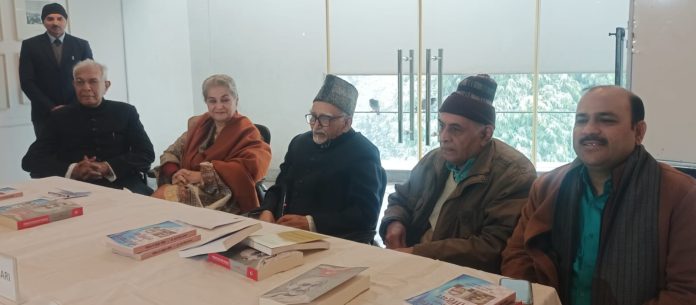New Delhi, Jan. 30: Former Vice President of India, Hamid Ansari, while addressing peace and communal harmony activists gathered from various parts of the country to observe the death anniversary of Mahatma Gandhi here today, said, “Communal disharmony had afflicted India before, and since Independence, its seriousness took time to be recognised. Finally, and after the experience of several decades, the Government constituted the National Integration Council in 1961 and the National Foundation for Communal Harmony in 1992. Various other legislative and administrative measures were taken from time to time.”
“A Communal Violence (Prevention, Control and Rehabilitation of Victims) Bill was introduced before 2014 but has remained unattended. The hesitation in accepting this as a problem was itself indicative of the mind as Incidents of Violence can and do happen sporadically. Organised violence however is another matter and results from hate that is nurtured purposefully. Instances of the latter have occurred in our society and invariably involve political planning and administrative connivance,” said the former Vice President while speaking at The Second National Convention on Communal Harmony program organized by Society for Communal Harmony.
The former Vice President, while quoting an eminent sociologist, T.K Oommen said, “The empirical reality of India does not suit the institution of the nation-state which relentlessly pursues cultural homogenisation in the name of cultural consolidation, and that groups and communities unwilling to surrender their cultural identity to avail of equality in citizenship entitlements should be coerced to do so in the name of national integration. The way out is the creation of a nation state which recognises cultural identity and celebrates it.”
“Thus, the challenge to our liberal polity established by the Constitution is both ideological and practical. The latter can be countered by a corrective administered by the electoral process as has been attempted from time to time. The former, on the other hand, requires a careful examination of the philosophic backdrop, ideological pronouncements and terminological sophistry of the political hypothesis that succeeded at the polls in 2014 and again in 2019, and which is optimistic about the immediate and foreseeable future,” said Ansari.
Senior Congress leader and former Union Minister Mani Shankar Aiyar, while recalling the Shaheen Bagh protest and the decades-long Palestinian struggle and resistance, said that if Indian Muslims are suppressed or anything imposed on them in the name of uniformity, they will not bow down easily but will resist. All the problems we are facing today are related fundamentally to whether or not we wish to continue as the secular India.
The former Union Minister recalled what former Prime Minister Rajiv Gandhi had said earlier on 3rd May, 1989 that only an India that is secular can survive and perhaps an India that is not secular does not deserve to survive. “I wonder that the secular forces of India today are ready to repeat this today in the face of clearly communal government with clearly communal overtone and clearly communal objectives,” he asserted.
Wajahat Habibullah, Ex-IAS and former Chairman National Minority Commission, while emphasizing pluralism, asked to encourage Muslim youth as they have great potential to transform society and community and can work for nation-building.
Kunwar Danish Ali, Member of Parliament said that on January 30 they killed Gandhi but they were not able to kill his principles and ideology. At that time, we had only one Godse but today they are producing the Godses everywhere and are trying to kill the ideology of Mahatma Gandhi.
It was suggested to form peace committees and to develop good rapport with people from other faiths and religions. Social mixing was emphasized.
The program was also addressed by John Dayal, Human Rights Activists, Mazhar Husain, Sardar Daya Singh, MD Thomas, Babloo Loitongbam, ND Pancholi and many others.




